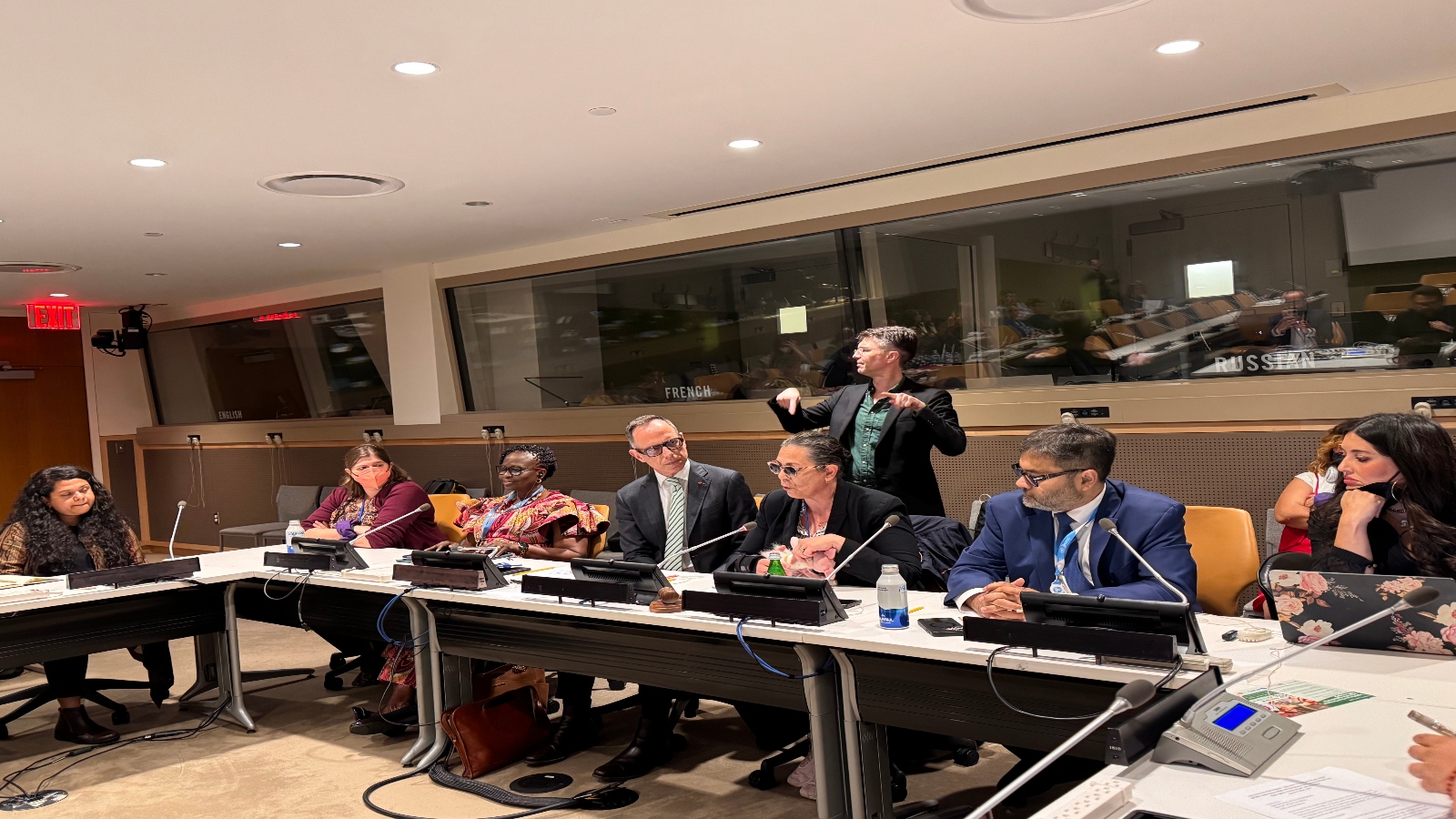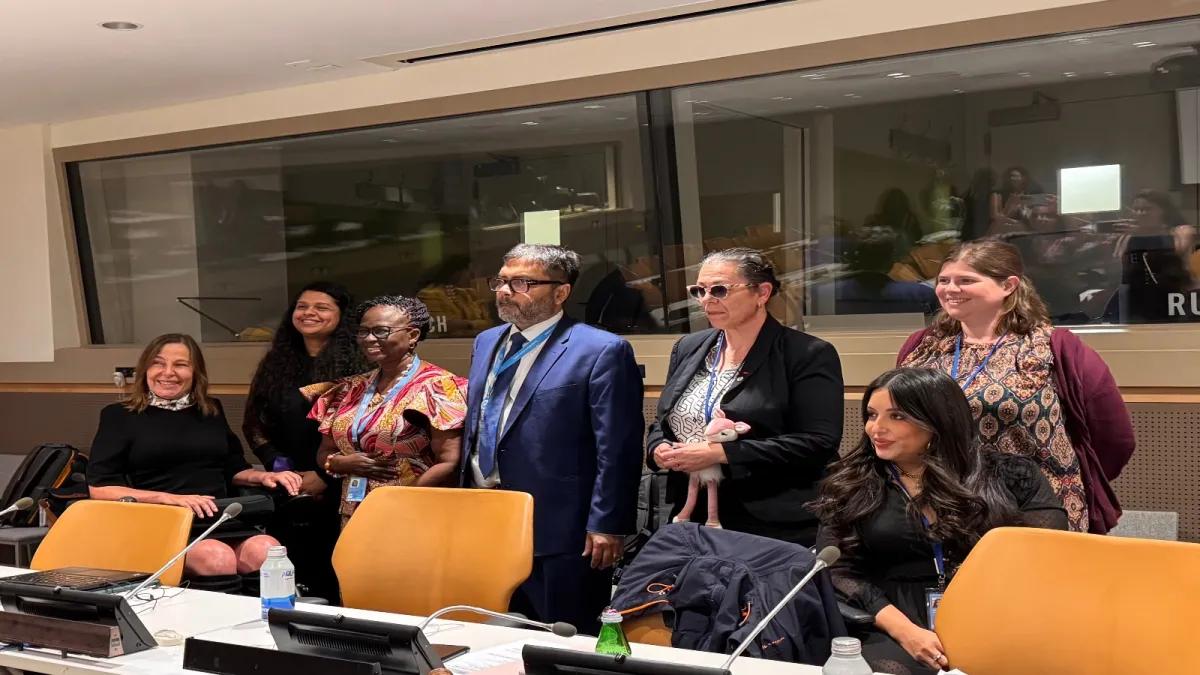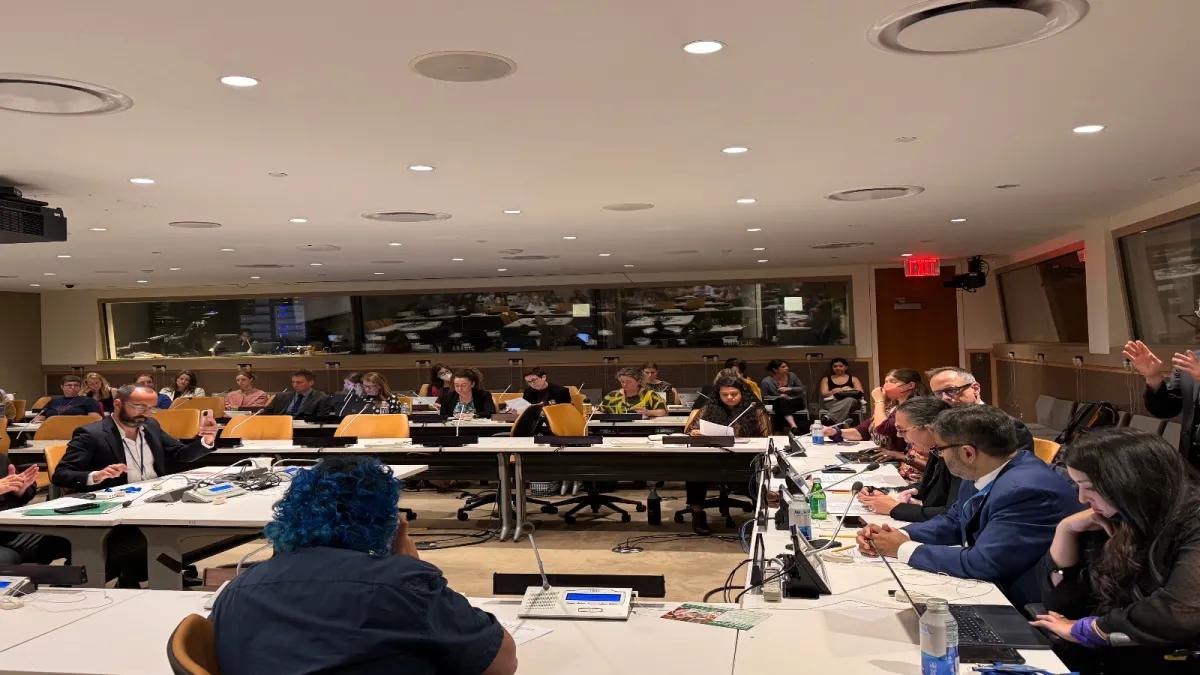
This side event was held on Monday, 9th June 2025 during the COSP18, co-organized by UN Women, the UN CRPD Committee, and Women Enabled International (WEI), and co-sponsored by Canada, France, Brazil, International Disability Alliance, and Sightsavers.
As the global community approaches the 20th anniversary of the Convention on the Rights of Persons with Disabilities (CRPD), this side event brought together diverse actors to reflect on the critical focus to the persistent and intersecting forms of discrimination and stigma faced by women and girls with disabilities. Framed around the upcoming launch of new Guidelines on duty of State parties to address multiple and intersectional forms of discrimination against women with disabilities, the event aimed to confront systemic barriers and promote meaningful inclusion grounded in the lived experiences of women with disabilities, providing actionable steps for States to uphold their obligations under Article 6 of the CRPD and bridge the implementation gap. These Guidelines, led by the CRPD Committee’s Working Group on Women and Girls with Disabilities, seek to bridge long-standing gaps between legal commitments and meaningful change
The event also aligned with broader milestones in the gender equality agenda, including the 30th anniversary of the Beijing Platform for Action, reinforcing the importance of intersectionality as a guiding principle in both disability and gender rights.
Speakers from Canada, WEI, the CRPD Committee, and French-speaking Association of Autistic Women identified a set of shared challenges, including:
- Persistent stigma, including harmful stereotypes about SRHR, autonomy, and leadership potential of women with disabilities;
- Limited data and measurement tools to track intersectional discrimination, particularly in areas like SRHR, employment, and education;
- Fragmented systems, where disability and gender movements are often siloed, and where policy design often excludes the leadership and knowledge of women with disabilities;
- Backsliding in gender equality spaces, with rising anti-gender rhetoric and resistance to intersectional approaches in some global and national contexts;
- Lack of accountability and gender responsiveness in national budgeting, implementation, and follow-up.
The discussion emphasized the need for an intersectional, rights-based, and participatory approach - anchored in the lived experiences of women and girls with disabilities. Participants called for stronger coordination between gender and disability sectors, full engagement of organizations of persons with disabilities (OPDs) in planning and budgeting processes, and broader dissemination and uptake of the forthcoming Guidelines. As next steps, all stakeholders were invited to contribute to the consultation and drafting phases of the Guidelines, ensuring they are practical, measurable, and inclusive.


 Welcome to the United Nations
Welcome to the United Nations